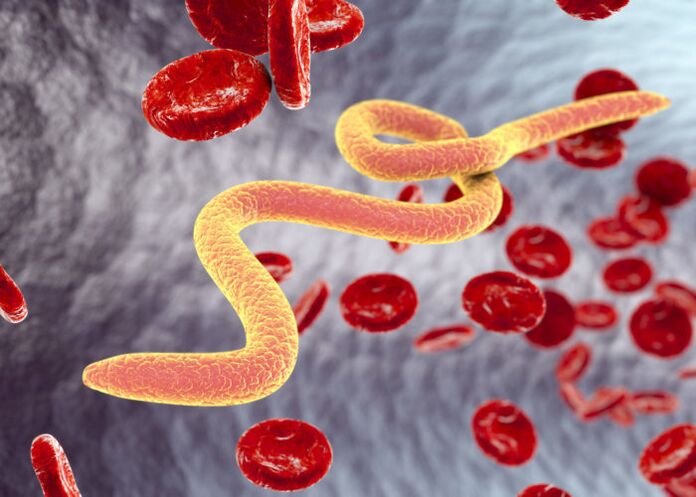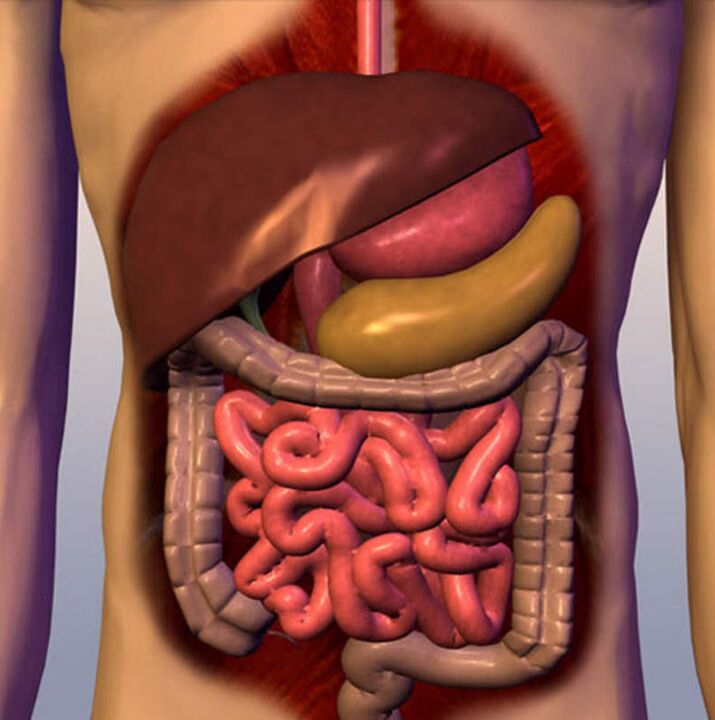Parasites are extraordinarily tenacious. For example, they can wait for their "master" for years, being in the egg or larval stage. Entering the body, that is, a favorable environment for life, parasites enter the active phase of existence, causing damage to human health.

Inhabitants all over the world suffer from parasitic infections. Experts believe that about 90% of the population of highly developed countries is infected with one or another human parasite. It is necessary to know the forms of infection with parasites and the symptoms of their presence in the body to avoid possible health complications.
Symptoms of human parasites
The development of tourism around the world is a prerequisite for the unimpeded migration of a wide range of parasites. In addition, it is worth noting that, in the process of evolution, these organisms have developed high resistance to environmental conditions and survival.
Where can you catch parasites?
The parasites are waiting for their new "host" on a variety of surfaces, in sinks, sinks, toilets, natural reservoirs.

The simplest parasites - lamblia are common in preschool institutions: they can infect a child with an elementary diaper change and / or with violations of sanitary rules.
There is a high risk of getting helminths (worms) from feeding points.
Institution level does not guarantee 100% protection against infection. The parasites enter the human body along with raw fish (sushi), undercooked meat (pork), with insufficiently washed vegetables, fruits and herbs.
Cooking food in microwave ovens has the potential to spread a parasitic infection: food is heated unevenly in a microwave oven. As a last resort, this oven should be used for heating purposes, but not for cooking.
Tap water is a favorable environment for all types of organisms. And chlorination does not destroy Giardia and Cryptosporidium.
Domestic animals are active distributors of helminths (especially cats). If you don't have a pet, you can get infected through the soil in parks, sandboxes, and playgrounds, because they keep dogs there.

Parasites find us easily, but we find them hard.
Parasites cannot always be detected by simple or modern diagnostic methods (stool analysis, eggs and parasite tests). Amoebic infection, for example, is recorded in only 1 in 10 stool examination cases.
This means that a negative test result for the presence of parasites does not guarantee their absence.
Parasites disguise themselves as other diseases
- Behind the apparent chronic fatigue syndrome and candidiasis, giardiasis can successfully hide;
- Ulcerative colitis will be a case of amoebiasis;
- Migraine, depression manifest in toxoplasmosis;
- Roundworms act as a pathogenic factor in allergies and asthma, atopic dermatitis, eczema in the younger age group;
- There is a hypothesis of a relationship between type 1 diabetes mellitus and helminths (tapeworm);
- There were precedents for curing hyperactivity and attention deficit syndrome after worm removal;
- Convulsions are possible when infected with a pig tapeworm;
- Blastocytosis is a trigger for leaky gut, which leads to autoimmune disorders and food allergies.
Signs of a parasitic infection
- Diseases of an autoimmune nature;
- Anemia;
- Sleep problems, teeth grinding. The parasites are activated at night and during the full moon phase. If insomnia makes itself felt during the full moon - think about it;
- Damage to the skin and mucous membranes: rash, acne, nail fungus, eczema, irritation/itching of the skin and mucous membranes of the nose, ears, eyes, around the anus, vesicles on the lower lip and oral mucosa;
- biting nails;
- Emotional instability: irritability, anxiety, depression, mood swings. Parasites secrete neurotoxins.
- Chronic fatigue;
- Weight problems: loss of appetite or, conversely, strong appetite, craving for sweets, obesity, underweight in children.
- Episodic increase in body temperature;
- Dark circles under the eyes;
- food allergy. The most frequently recorded latent allergy to dairy products;
- Nocturnal Enuresis;
- Diseases of the genitourinary system: impotence, erectile dysfunction, prostate disease, PMS and menstrual cycle, cysts and fibroids, fluid retention;
- Change in the size of the liver and/or spleen;
- Muscle wasting, muscle weakness, spasms and numbness of the upper and lower extremities;
- Infections of a chronic and recurrent nature: viral, bacterial and fungal (recurrent candidiasis);
- night sweats;
- Unpleasant "aroma" of the body and breath.

The most striking symptoms of the gastrointestinal tract:
- excess saliva,
- itching around the anus,
- gallbladder problems,
- heartburn, hemorrhoids,
- gas formation,
- Constipation,
- diarrhea,
- to vomit,
- gluten, casein and lactose intolerance.
Characterized by alternating constipation and diarrhea.
Alarming symptoms of a parasitic infection are:
- bacterial overgrowth cider
- irritable bowel syndrome and irritable bowel disease.
As you can see, it is not so easy to establish the presence of parasites in the body. But certain alarms and conditions should alert you.
P. S. And remember, just by changing your consumption, we are changing the world together!

















